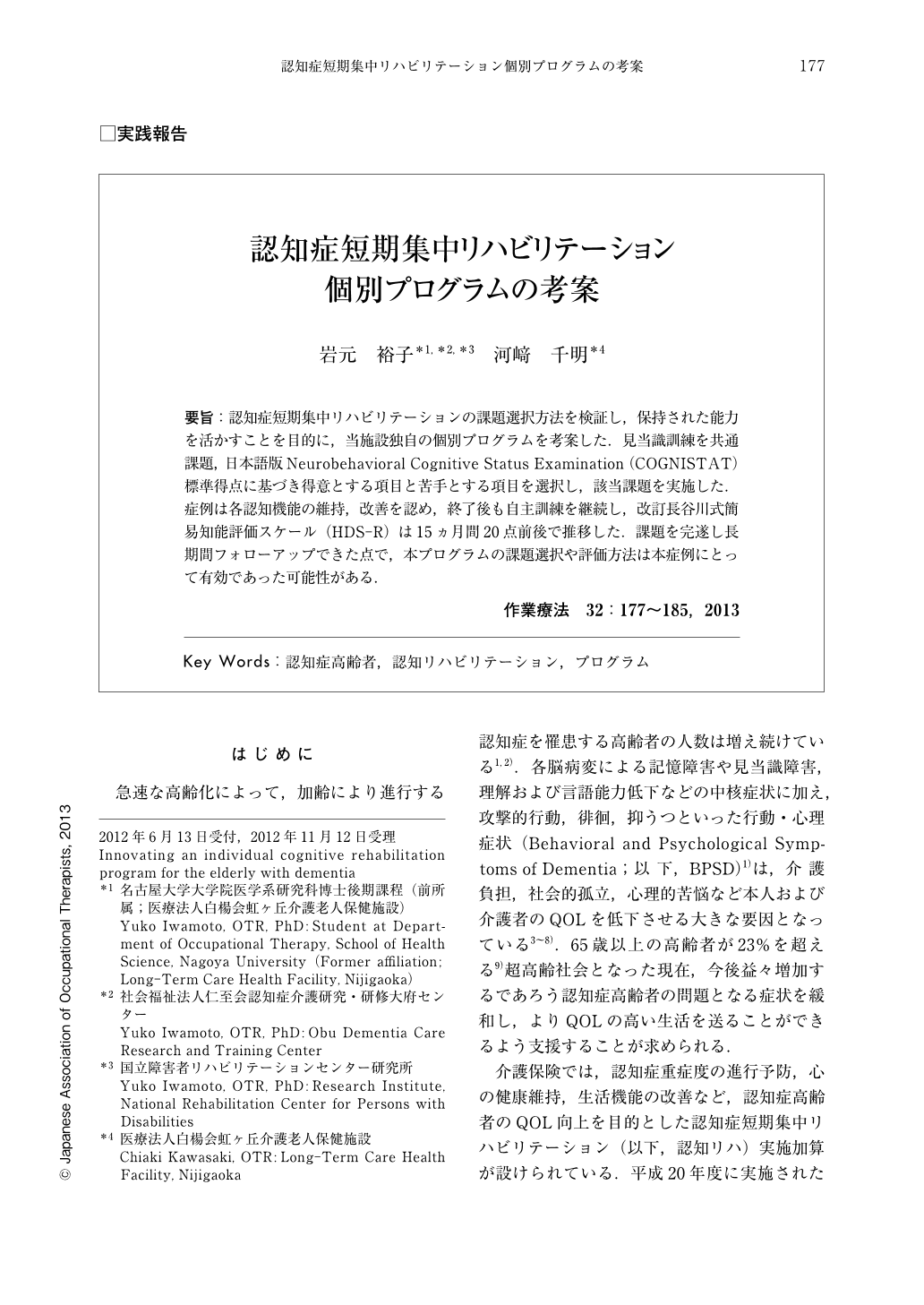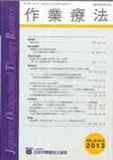Japanese
English
- 販売していません
- Abstract 文献概要
- 1ページ目 Look Inside
- 参考文献 Reference
- サイト内被引用 Cited by
要旨:認知症短期集中リハビリテーションの課題選択方法を検証し,保持された能力を活かすことを目的に,当施設独自の個別プログラムを考案した.見当識訓練を共通課題,日本語版Neurobehavioral Cognitive Status Examination(COGNISTAT)標準得点に基づき得意とする項目と苦手とする項目を選択し,該当課題を実施した.症例は各認知機能の維持,改善を認め,終了後も自主訓練を継続し,改訂長谷川式簡易知能評価スケール(HDS-R)は15ヵ月間20点前後で推移した.課題を完遂し長期間フォローアップできた点で,本プログラムの課題選択や評価方法は本症例にとって有効であった可能性がある.
Objective: This paper introduces a new cognitive rehabilitation program for patients with mild to severe dementia for the purpose of using remaining abilities. The study focuses on the elderly. Methods: The program consists of cognitive functional items, including memory and attention, based on the Neurobehavioral Cognitive Status Examination (COGNISTAT). Reality Orientation (RO) was a common task, and two items both in the highest and the lowest points were chosen as strength and recovery tasks. One 20-minute session was conducted three times a week for 3 months. Results: A participant with mild dementia (age:92, gender:female) was able to participate in all sessions. In terms of the Hasegawa Dementia Scale-Revised (HDS-R), a 20-point score was maintained for 15 months after the program was completed. Conclusion: The participant accomplished the program and we could follow up on her for a long period. The proposed new cognitive rehabilitation program and the assessment procedures were considered valid and proper in this case.

Copyright © 2013, Japanese Association of Occupational Therapists. All rights reserved.


